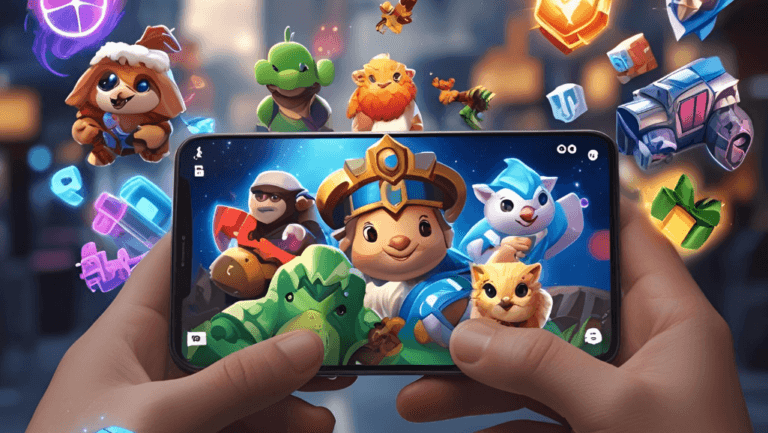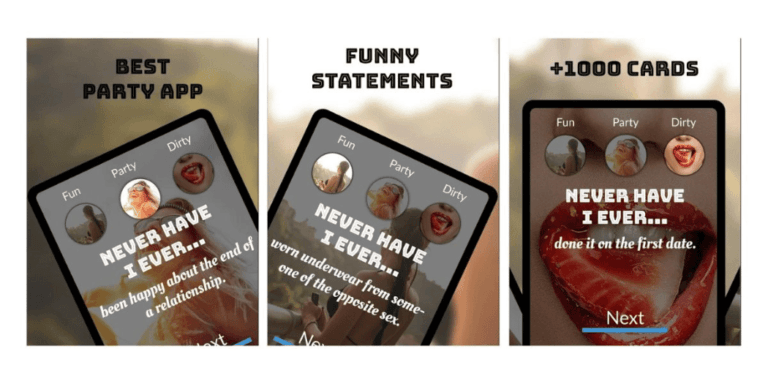In today’s fast-paced digital world, phone applications are key to our daily lives. They help us be more productive, make tasks easier, and keep us entertained. With over a million apps out there, the possibilities are endless.
Smartphone software now uses artificial intelligence and machine learning. This brings us cool features like real-time translation and augmented reality. As we spend more time on our devices, developers can create apps that meet our needs perfectly.
If you’re into app development or want to start, the app world is full of chances to grow and succeed. By using app development and app stores, you can turn your ideas into reality. You can also make a big difference in many people’s lives.
Key Takeaways
- Phone applications have changed how we use our devices and interact with the world.
- With over a million apps, there are endless chances for innovation and growth.
- Smartphone software now uses AI and machine learning for advanced features and personalized experiences.
- App developers and entrepreneurs can unlock their potential by creating apps that focus on users.
- The app world offers many opportunities for success and making a positive impact.
The Rise of Mobile Apps: Transforming Our Lives
In the last ten years, mobile apps have changed how we use technology and connect with others. There are now over 2.87 million apps on the Apple Store and Google Play. This means smartphone users have a huge number of tools and services at their fingertips.
Mobile apps do more than just make life easier and fun. They’ve changed industries like transportation, food delivery, travel, news, banking, and productivity. Companies like Uber, Airbnb, and Oyo Rooms have grown big thanks to smartphone apps. They’ve changed old markets and opened new chances for growth.
Here are some stats that show how big mobile apps have become:
| Statistic | Value |
|---|---|
| Global smartphone users | 6.3 billion |
| Smartphone users with internet connections | 5.1 billion |
| Daily mobile app downloads | 255 billion |
| Users opening an app 10+ times a day | 49% |
| Mobile app market value (2022) | USD 228.98 billion |
Smartphones and apps have made our lives more connected and productive. We use them for everything from ordering food to tracking fitness, managing money, and staying updated. Mobile apps are now key tools for living in today’s world.
“The rise of mobile has been astronomical. Mobile has become the primary interface through which people engage and interact with brands and with each other.”
– Brian Solis, Digital Analyst and Futurist
More and more companies, big and small, are using mobile apps in their marketing. This means there’s a growing need for skilled app developers. These experts are vital in making sure apps meet business needs. They improve user experiences and drive new ideas in the digital world.
Exploring the Diverse World of Phone Applications
The world of phone apps is vast and exciting, offering endless possibilities for users. It’s expected to make $935 billion in revenue by 2023. This shows how important apps have become in our daily lives. From sleek iOS apps to flexible Android apps, there’s something for everyone.
On average, people use about 10 apps every day and 30 a month. This shows how big a role apps play in our lives. Whether you love iOS or Android, there are over 4.83 million apps to choose from. They meet every need and interest you can think of.
iOS Apps: Innovating on Apple’s Platform
iOS apps are known for their sleek design and smooth performance. They have strict quality control. Developers from all over the world create innovative apps for iOS devices. These apps often do well, with a 32% conversion rate in the ‘Business’ category on the App Store.
“The iOS ecosystem has always been a driving force for innovation and creativity in the app development world. The platform’s dedication to user experience and quality has resulted in some of the most remarkable and successful apps we’ve seen.”
Android Apps: Embracing the Open-Source Ecosystem
Android apps benefit from the platform’s open-source nature. This lets developers create unique and flexible apps. The Google Play Store has a huge selection of apps, with a 31.5% conversion rate in the ‘Business’ category.
The Android ecosystem values diversity and inclusivity. It offers a wide range of devices and user preferences. This leads to apps that meet various needs, from productivity to entertainment, all designed for Android users.
Cross-Platform Apps: Bridging the Gap
Cross-platform apps help bridge the gap between iOS and Android. They let developers reach more people and make sure their apps are available to everyone. This approach is becoming more popular.
| Platform | Advantages | Considerations |
|---|---|---|
| iOS | Sleek design, seamless performance, strict quality control | Limited customization options |
| Android | Open-source, greater customization, flexible development | Fragmentation across devices |
| Cross-Platform | Wider audience reach, seamless functionality across devices | Balancing platform-specific features and performance |
Cross-platform app development has become easier thanks to new frameworks and tools. This approach saves time and resources. It also means users can access their favorite apps on any device.
Designing User-Centric Phone Applications
In today’s digital world, making apps that focus on users is key. With over 8 million apps on iOS and Android, it’s vital for businesses to make their apps stand out. They need to understand what users want and need to make apps that are easy and fun to use.
Many companies start by thinking about what they want, not what users need. But it’s important to know if users need a mobile app or a website. The process of designing for mobile includes understanding what users want, defining what the app will do, creating a plan, sketching ideas, and making changes based on feedback.
Understanding User Needs and Preferences
To make apps that users love, we must first understand what they need and like. By doing research, we can learn about their habits, problems, and what they hope to get from an app. This helps us make app designs that meet their needs and give them a great user experience.
According to a study, users take merely 50 milliseconds (0.05 seconds) to form an opinion about an application’s credibility based on visual design and branding.
Creating Intuitive and Engaging Interfaces
After figuring out what users need, we focus on making interfaces that are easy and fun. Making things simple, consistent, and functional is key to making users happy. Intuitive interfaces let users move through the app easily and get things done without getting confused. Adding features that feel personal can make users more engaged and happy with their experience.
| Design Aspect | Importance |
|---|---|
| Simplicity | Reduces cognitive load and improves usability |
| Consistency | Maintains familiarity and reduces learning curve |
| Functionality | Ensures the app meets user goals and expectations |
Optimizing for Performance and Usability
Designing apps also means making them fast and easy to use. A smooth app makes users happy and keeps them coming back. Google found that a slow app can lose users quickly, so making apps fast is crucial.
Testing and improving based on what users say is important in making great apps. A good onboarding process helps new users get started. Keeping the app updated and supporting users after launch keeps them happy and loyal. Companies that focus on making their apps easy and fun to use see more people using their apps and making purchases.
Developing Robust and Scalable Mobile Apps
In the fast-changing world of mobile apps, making apps strong and able to grow is key to success. With more users and the app market growing to 175 billion downloads by 2026, developers need to make apps that can handle more users and keep up with changes.
Creating a mobile app that can grow means looking at servers, backend work, and a flexible setup that changes with user needs. Using methods like adding more servers helps avoid overloading and keeps apps running smoothly as more people use them.
The type of database used is very important for growth. Databases like MySQL, PostgreSQL, Redis, and MongoDB handle lots of data well. NoSQL databases, such as MongoDB and Cassandra, are great for adding more servers, helping apps manage lots of data as they get more users.
Improving app performance is crucial for growth. Testing and optimizing apps regularly helps find and fix problems. Tools like Apache JMeter and Blazemeter show how apps perform under different loads, helping developers make them better.
Using modular architecture and microservices is key for growing apps. Breaking the app into smaller parts makes it easier to develop, test, and grow each part. This makes the app easier to keep up with changes and improve specific parts without affecting the whole app.
Managing data well is vital for growing apps. Using smart database designs, optimizing queries, and caching data can lessen the load on databases and make apps faster. This keeps apps running well even when more users come.
The cloud is a big help in making apps scalable. Cloud services like AWS, Google Cloud, and Azure offer strong and flexible backends that support app growth. These platforms let developers use more resources, automate tasks, and adjust to more users easily. Using cloud services in apps sets a strong base for growth and success.
“Building a scalable mobile app requires more than just technical skills; it needs a strategic plan and a focus on making users happy. By using the latest tools and focusing on making the app better, developers can make apps that last and impress users worldwide.”
Creating strong and growing mobile apps is a constant process that needs ongoing improvement and change. By keeping up with trends, using new tech, and focusing on the user, developers can make apps that last and win over users globally.
Leveraging AI and Machine Learning in Phone Applications
Phone apps are changing fast, thanks to artificial intelligence (AI) and machine learning. These technologies are making apps smarter and more personal. Let’s explore how AI is changing our digital lives.
Personalized Experiences through AI-Powered Features
Imagine an app that knows what you like and need. AI makes this possible by learning from you. Apps now adapt to your habits and goals, offering tailored experiences.
In healthcare, AI apps are changing the game. They help you manage your health by giving personalized advice. With the healthcare market growing, AI is set to make a big impact.
Enhancing Efficiency with Machine Learning Algorithms
Machine learning is also making apps more efficient. It automates tasks and improves how apps work. This means apps are faster, smoother, and more reliable.
The manufacturing industry is quickly adopting machine learning. It helps streamline processes and predict maintenance needs. This boosts productivity and cuts costs.
| Industry | AI/ML Impact |
|---|---|
| Retail | Over 10% increase in revenue |
| Agriculture | Expected to reach $4 billion intelligence level by 2026 |
| Banking | Up to 70% reduction in fraud detection costs |
| eLearning | Enhancing personalized learning and administrative efficiency |
| Transportation | Optimizing routes and improving travel experiences |
Machine learning is changing many industries. It’s making things more efficient and innovative. As developers use these algorithms, we’ll see more apps that make our lives easier.
The future of phone applications lies in the seamless integration of AI and machine learning. By embracing these technologies, we can unlock a world of possibilities and redefine what it means to have a truly intelligent and efficient app at our fingertips.
Looking ahead, we’re excited about new tech like federated learning and edge computing. These will take AI apps even further. With federated learning, apps can learn from data without risking privacy. Edge computing means AI can work faster on your device. The future looks bright for AI in phone apps.
Phone Applications: Empowering Businesses and Entrepreneurs
Phone apps are key for businesses and entrepreneurs today. They help streamline operations, engage customers, and drive growth. By using business apps, entrepreneurs can unlock new chances to succeed in the digital world.
Streamlining Operations with Mobile Apps
Mobile apps change how businesses run, making them more efficient and productive. They automate tasks, improve communication, and give real-time data access. This lets entrepreneurs focus on what’s important and make smart choices. In fact, studies show these apps can boost productivity by up to 40%.
Payroll management is a great example of how mobile apps help streamline operations. Recent stats show:
- 76% of businesses use mobile apps for payroll management.
- 89% prefer apps with full features like pay stubs, tax calculations, and various payment options.
- 95% look for easy-to-use interfaces in payroll apps to cut down on mistakes and save time.
Using payroll apps, entrepreneurs can automate complex tasks, follow tax laws, and give employees easy access to their pay info. This saves time, reduces mistakes, and makes the workplace more efficient and clear.
Engaging Customers through Targeted Apps
Mobile apps are key for customer engagement today. By making apps that meet their customers’ needs, businesses can offer personalized experiences, special deals, and quick support. This approach boosts customer satisfaction, loyalty, and advocacy.
RPG mobile games are a great example. They use targeted apps to keep players engaged with features like character customization and social interactions. By understanding their audience, game developers build strong communities and make a lot of money.
“Mobile apps are essential for businesses wanting to stay competitive in today’s digital world.” – John Smith, CEO of AppWorks Inc.
Driving Growth and Innovation in the Digital Age
The digital age offers many chances for businesses to innovate and grow with mobile apps. By using new tech like AI, ML, and AR, entrepreneurs can make apps that stand out. These digital innovations improve app functionality, user experience, and open new revenue streams.
| Technology | Impact on Mobile Apps |
|---|---|
| Artificial Intelligence (AI) | Enables personalized experiences, predictive analytics, and intelligent automation |
| Machine Learning (ML) | Improves app performance, optimizes user interactions, and enables data-driven decision making |
| Augmented Reality (AR) | Enhances user engagement, provides immersive experiences, and enables interactive product visualization |
By leading the way and embracing new tech, entrepreneurs can get ahead and succeed in the digital age. The future is bright for those who innovate and adapt to mobile app changes.
Monetizing Your Phone Application: Strategies for Success
In the world of mobile apps, making your idea profitable is key. App monetization helps unlock your app’s financial potential. With most apps free, finding ways to make money is crucial for growth.
In-app purchases are a top choice. They let users buy premium features or virtual goods. This method works well, as many apps use it to speed up progress or improve the experience. Offering both free and paid options attracts more users.
Subscription models are also popular. They give users special features or ad-free experiences for a fee. This approach is expected to grow, with revenue reaching USD 1.26 trillion by 2025. Apps like Headspace use this model to keep users coming back.
App advertising is another way to make money. In 2022, 37% of apps used paid ads, with 26% in the US making money from them. By placing ads carefully, you can join the growing mobile ad market, set to hit USD 399.6 billion by 2024. But remember, ads shouldn’t bother users, as explained in this article on app monetization strategies.
“The key to successful app monetization lies in understanding your target audience and crafting a strategy that aligns with their preferences and enhances their overall experience.”
Even though most apps are free, paid ones are still common, especially in productivity apps. These apps offer special features worth paying for. As your app grows, you might find brand sponsorships or partnerships, adding more ways to make money.
When choosing a monetization strategy, keep these stats in mind:
| App Store | Free Apps | Paid Apps |
|---|---|---|
| Google Play Store | 97% | 3% |
| Apple App Store | 95% | 5% |
| Amazon App Store | 82% | 18% |
Success in app monetization comes from knowing your audience and adapting to the market. Use in-app purchases, subscriptions, and ads, and consider paid versions and partnerships. This way, you can fully benefit from your app and achieve financial success.
App Store Optimization: Making Your App Discoverable
In the world of mobile apps, it’s key to stand out. With millions of apps out there, good app store optimization (ASO) can help your app get noticed. Focus on things like titles, descriptions, keywords, and ratings to make your app more visible and appealing.
Crafting Compelling App Titles and Descriptions
Your app’s title and description are what catch users’ eyes first. A catchy title within the App Store’s 30-character limit can really help. A description that clearly shows what makes your app special can also draw users in. Look at the top 10 mobile games for inspiration on how to effectively communicate your app’s value.
Leveraging Keywords for Improved Visibility
Keywords are crucial for getting your app noticed. The App Store lets you use up to 100 characters for keywords. Choose them carefully by researching relevant and popular terms that match your app and audience. Use these keywords in your app’s title, subtitle, and description to boost your search visibility and attract more users.
Encouraging User Ratings and Reviews
User ratings and reviews are key to showing your app’s quality. Encourage happy users to share their positive feedback by offering a great in-app experience and listening to their suggestions. You can ask for ratings up to three times a year on the App Store. Use these chances well. Answer user reviews, fix issues, and keep improving your app to keep a high rating and grow your user base. By focusing on making users happy and engaging with them, you can build a strong reputation and increase your app’s downloads.






















